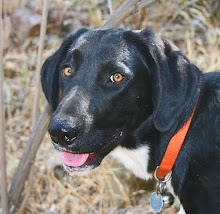 |
| Buckminster invites the author to a sparring match (ca 1979) |
There is a reason you haven't heard from me lately.
I was busy writing my personal memories of the late Theodore H. Reed, who died last year at the age of 90.
Ted Reed was Director of the Smithsonian National Zoological Park from 1955 to 1982, and he hired me in 1974 to work at the zoo's Conservation and Research Center.
Several colleagues joined me recently at the National Zoo to memorialize Dr. Reed and celebrate the National Zoo's 125th anniversary.
Here's one of my anecdotes from the late 1970s.
"In due course, the Zoo and its conservation center became destinations worth seeing, and Ted hosted visiting VIPs with a personal touch.
One of those VIPs was the Director of the Zurich Zoo, Heini Hediger, who was well known as the father of Zoo Biology.
In those days, a curator who hadn't read Hediger's books, Man and Animal in the Zoo, and The Psychology of Animals in Zoos and Circuses hadn't done his or her homework.
Ted had me open gates, and do "the show and tell".
At Greenhill Barn we had a herd of young Eld's deer that had been hand-reared for studies of reproduction, and being a keen student of ungulate behavior, I demonstrated the universal signal used by deer to terminate unwanted social interaction, such as invitations to spar with the antlers.
The basic rule is this: Don't make eye contact. Turn away and just graze or pretend to graze.
We observed this cut-off signal many times in different species of deer.
Even a person can give the signal by turning away and plucking grass with the hand.
On this occasion my imitation worked like a charm.
Buckminster was game for a sparring match, and followed me around poking me in the butt.
I just kept plucking grass, and soon he lost interest and started grazing.
Buckminster was game for a sparring match, and followed me around poking me in the butt.
I just kept plucking grass, and soon he lost interest and started grazing.
Hediger had been impressed and wanted the photos for his lectures.
"Dr. Reed, it doesn’t always work. I’m not sure he’ll do it again.”
Ted's response? “Just get it. He did it yesterday, he’ll do it again.”
It took a while to get those pictures, but Ted's prediction was right.
Buckminster finally tired of horning me in the butt and started to graze.
